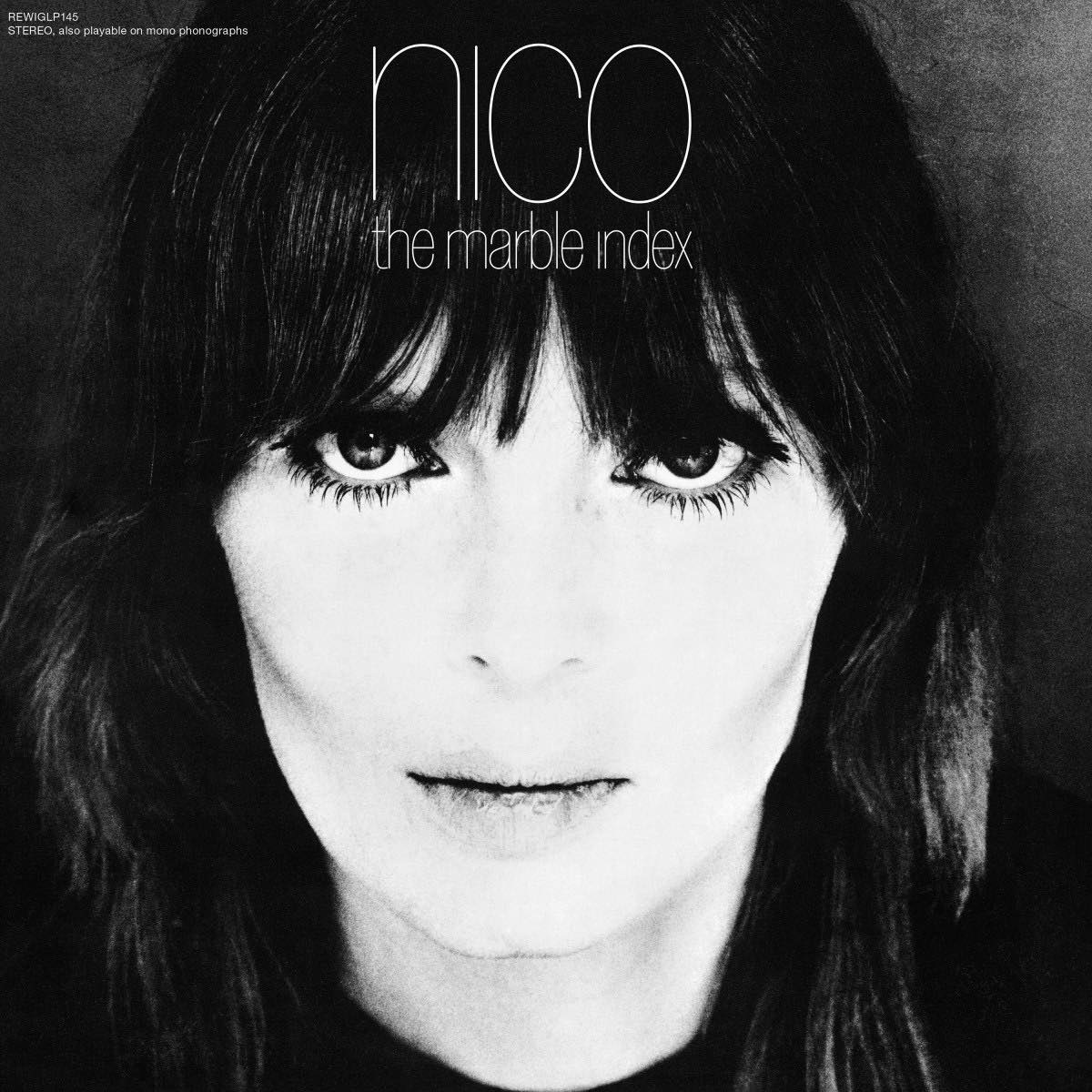Nico
The Marble Index + Desertshore [Reissues]
DOMINO
Between the oddly upbeat drone that filled her parts of March 1967’s The Velvet Underground with Nico and the autumnal, sun-dappled October 1967 solo debut Chelsea Girl, one might have guessed that German chanteuse Nico was playing to an imaginary pop mainstream, one untouched by the psychedelic haze of the Summer of Love. But Nico had other plans, which were more in league with the Reed/Cale co-write that is “The Black Angel’s Death Song.” Armed with low, unsteadying-yet-somber vocals, her humming harmonium, producer-instrumentalist John Cale, and raven-black hair dye, Nico re-established herself as the solitary woman of The Marble Index and Desertshore.
Despite the fact that neither album (put out in 1968 and 1970, respectively, via Elektra Records) sold above tiny cult status, Nico created a moody sonic legend as soon as each was initially released—from Euro-classical death goddess to nihilistic space cadet—that would peak dramatically (in a good way) by the time of her Morrison-esque fantasy The End in 1974, and remain with her until the end of her life. Domino Recordings’ newly remastered re-pressings of Nico’s work with Cale make the crackling drone of The Marble Index (now featuring a bonus 7-inch of “Roses in the Snow” and “Nibelungen,” recorded for the 1968 album) and Desertshore sparkle brightly within (or despite of) their Black 4.0 darkness level.
As far removed from 1968’s pop moment as possible, The Marble Index is graceful, gut-churning neo-Medieval music (with but a hint of psychedelia) rendered sparsely and scarily by Cale and Nico alone. Calling her lyrics ruminative doesn’t go quite deep enough into Nico’s primal introspection: each tense phrase and its labored, chilly enunciation bores into her soul and comes out as some beautiful brand of disgust and despair. The common mythology challenged throughout “Julius Caesar (Memento Hodié),” with its dueling drones of cello and harmonium, is icily heart-stopping, as is the immensity of “Frozen Warnings” and its misty pipe organ’s moans. When “The midnight winds land at the end of time” through the storm of hypnotic harpsichord and lightning-bolt viola that is “Evening of Light,” you’ll feel uneasily stunned and cold. “Lawns of Dawns” and its mossy harmonium tone—to say nothing of its odd, click-clacking noisiness—is set off-balance by its caressing lyrics influenced by Nico’s time tripping with Jim Morrison.
Co-produced by Cale and Anglo-folk legend Joe Boyd, the shimmer of Desertshore welcomes back conventional (by Nico standards) elements such as tuned instrumentation and harmony vocals. Orthodoxy, however, stops after the beauty standard of “Afraid” and its lilting piano balladry, and the menacing yet lovely “The Falconer.” “All That Is My Own” is a mass of hurricane FX and vicious percussion with Nico’s vocal presence at its most forcefully dominant. The violent classicism of “Janitor of Lunacy” is what the first Velvet Underground album would’ve sounded like if Cale wrote and produced its entirety rather than Reed and Tom Wilson. Sung in native German, “Abschied” and “Mütterlein” drift dreamily into space, save for Nico’s taut, unnerving punctuation.
Taken together, The Marble Index and Desertshore (and the Cale-produced The End, too—let’s hope Domino buys that for re-release soon) are compelling listens that’ll never stop swirling around your brain.









